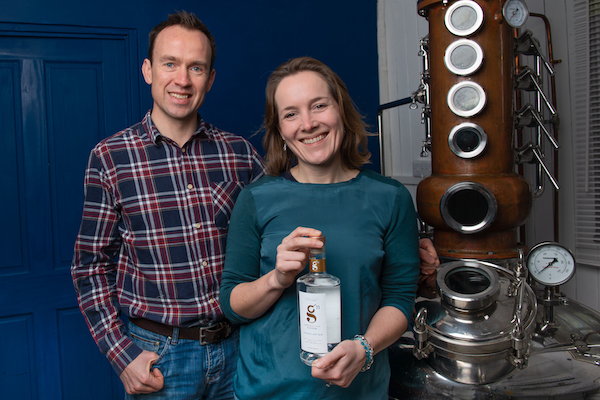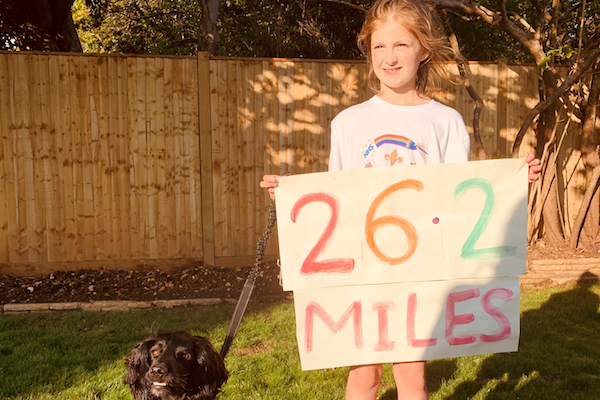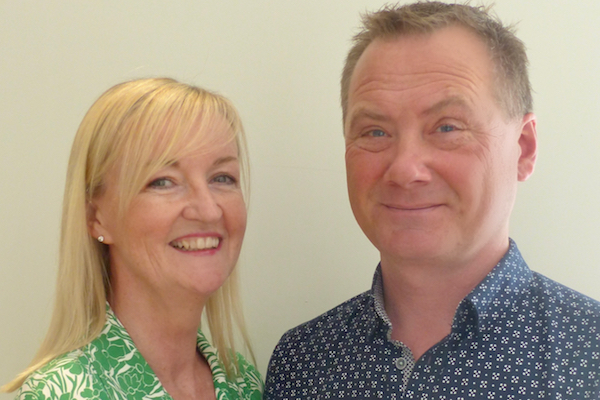
There has been so much written about two specific types of business during the last few weeks. Those that are on the edge, support for which may or may not be enough to keep them afloat; and businesses that are thriving, those that fit well into the #stayhome lifestyle – conferencing apps as an example. But some businesses are doing something completely different and using their vision and their capability to try something very different from the norm, and being hugely successful.
Claire Kentish Barnes and her husband Ed launched their distillery near Lewes two years ago. Their vision: to create a portfolio of drinks that are beautifully made, transparent in their making and marketing and made using locally sourced ingredients. Their business also supports other local enterprises by sourcing as much as they can from other local independents.
Usually at this time of year, the pair would be preparing stocks for summer trade, showing the gin at events and trade shows and developing new business; but they are not doing any of that – they are making hand sanitiser in their distillery instead.
‘The week before lockdown, orders dropped off a cliff,’ says Ed, ‘we were lucky that we are not hugely exposed in on-trade businesses (pubs, restaurants and hotels), but all of our customers were anxious, unsure of what the next weeks would bring and understandably reluctant to tie up capital in stock that they may not be able to sell.’
‘I had heard of some of the bigger distilleries making hand sanitiser from the alcohol that we have stored and make in our distilleries’ says Claire. ‘We thought that this was something we could do, but were unsure of the need for it in our local community’. Claire posted on a few local social media sites that they have the capability and wanted to gauge whether there was a need for the product - the response was overwhelm- ing! ‘We didn’t even think about making an alternative choice after that, we were straight into planning mode – how are we going to make this happen’?
With a background in product sales and marketing, Claire was experienced in managing projects and get- ting product to market, and Ed’s experience as a master brewer and FMCG consultant gave them operational expertise; but the pace of this project and what this small distillery have achieved in the time is what sets them apart.
Claire and Ed delivered their first batch of hand sanitiser two weeks after receiving the online response. There were a number of very important aspects to this project that we needed to get through before we could launch the product. We needed to protect ourselves and our existing business, but alongside this we wanted to get the product to market as soon as we could. We engaged with HMRC, HSE and trading standards initially to ensure that we were working within the guidelines. ‘There was confusion as to whether we could denature the alcohol our- selves, thus removing the duty liability on the product. Spirit duty is £28.74 a litre and needs to be paid on everything leaving our bonded warehouse. To make hand sanitiser, we need to denature the alcohol, but we didn’t have a licence for that.
Being part of a trade association meant that we had a direct communication link with HMRC and via the lobbying of the British Distillers Alliance, we soon had the news that we were after, that those with a bonded warehouse were able to effectively denature the alcohol and make hand sanitiser without the duty liability’. This came with a number of caveats, in particular the use of the World Health Organisation formulation for alcohol based hand sanitiser. This was great news, and gave them a very clear focus – the recipe and methods were prescribed.
But moving from being a distiller to being a biocide producer threw up lots more questions - did they need to be registered as a producer to bring the product to market? Did they need to have the product independently laboratory tested in order to launch? Would anyone buy it from them if they just followed the formula and didn’t get it tested?
Other more practical issues almost halted their ability to press on – plastic is scarce at the moment, mostly coming from China, plastic bottles and containers were near impossible to source on the open market. A call to a local warehouse and a call from a company who had bottles in stock and were looking to free up some warehouse space meant that they had their first and second consignments covered.
One of the main drivers for delivery is to make hand sanitiser at an affordable price so that it is comparable to the standard cost per unit that organisations have become accustomed to paying. The pair also decided to sell the hand sanitiser to the public as well as producing bulk for care homes, and frontline workers. For every 1L that they sell to the public, they give the same away in donations. At the time of writing, they have made and sold/donated 500L and we have another 800L on order.
Although Ed and Claire have worked tirelessly and continue to do so to get the hand sanitiser to those that need it, the project has a real community feel about it. ‘Right from the start we involved our own community in this project by asking them about their needs. We have had so much contact from local councils, NHS trusts, care homes, schools, charities, volunteer groups, food banks and individuals all congratulating us on our efforts and supporting us to ensure that the product gets to where it is needed most.
We have had great support from the Sussex Innovation Centre, and had exposure through local press and local business forums, there is a real community spirit from the local business community as we come together at this time of crisis and it is humbling to be able to be a small part of that’.
www.generationdistillers.co.uk
Claire Kentish Barnes clairekb@generation11.co.uk @generation11gin
+44 (0) 7747 848764





